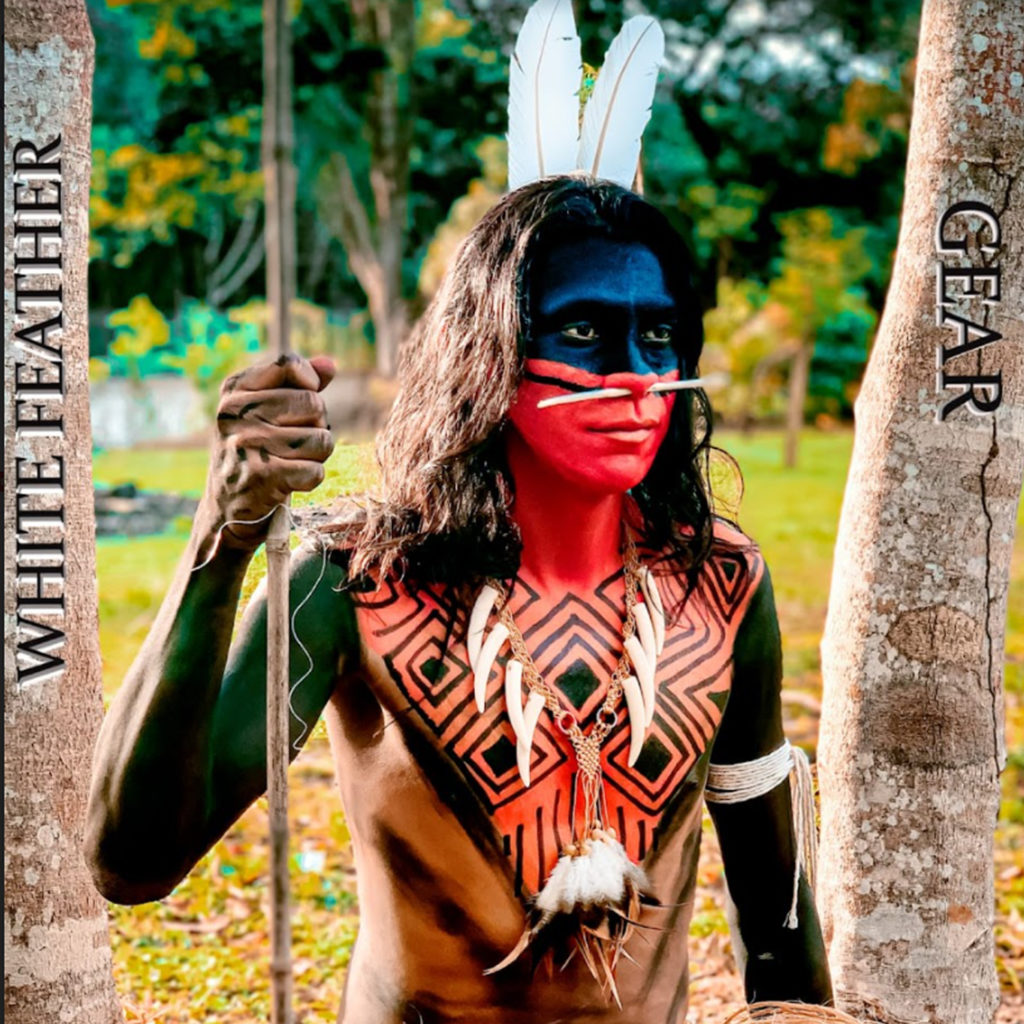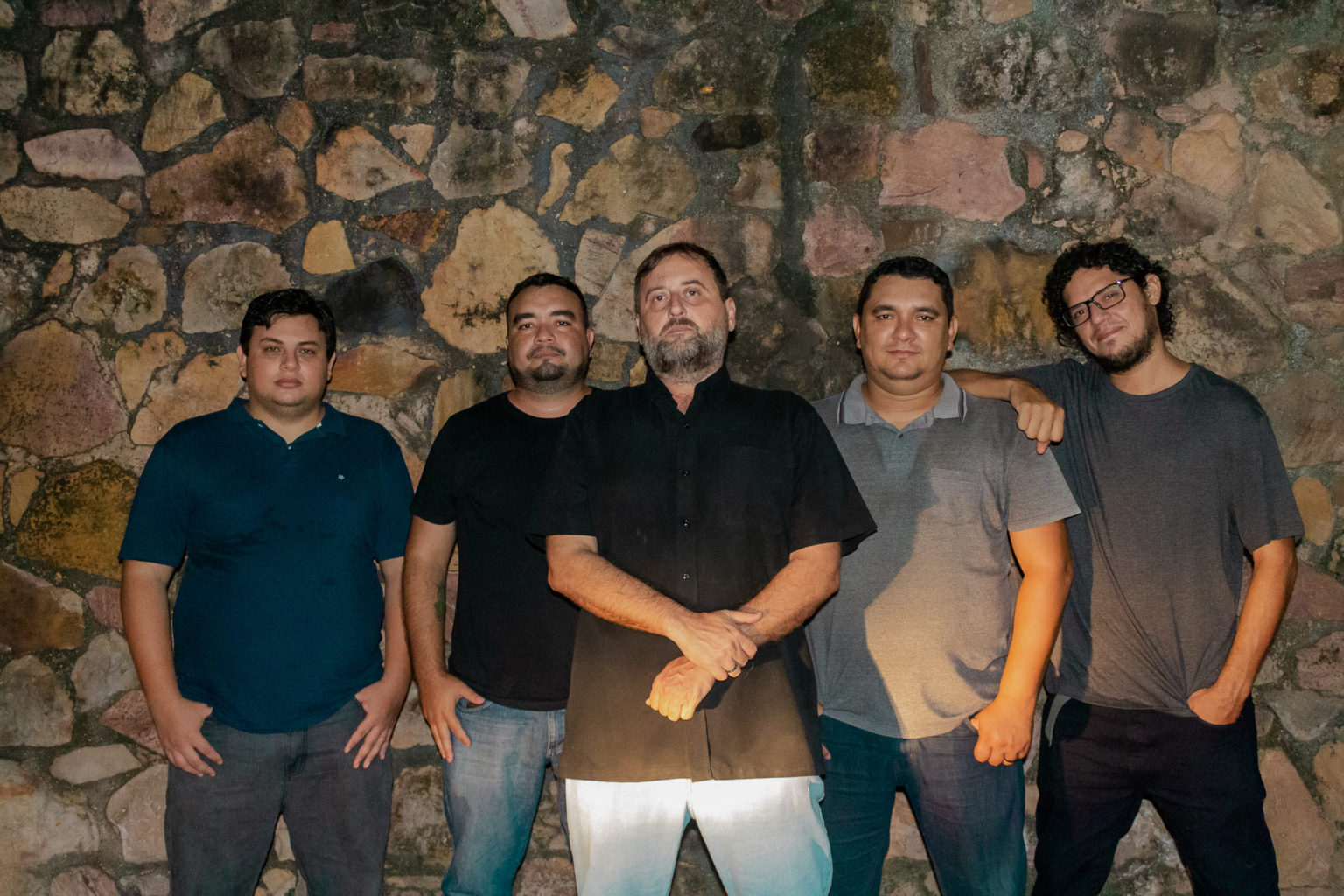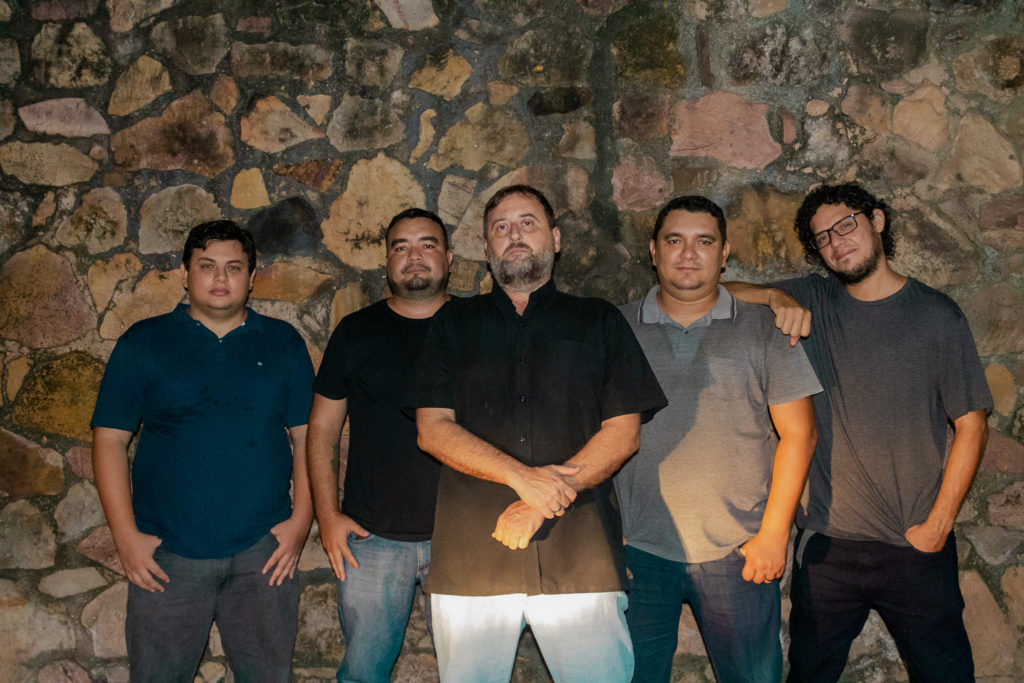Gear is an Amazonian band created in 2016 that aims to present the versatility of their songs through their compositions. With variations in the songs that include the traditional rock and also many percussive elements mixed with traditional folk instruments (viola caipira and charango), the band’s songs talk about nature, love and urban situations such as saudade, the twists and turns of life and hope for better days. The band has just released the single ‘White Feather’ across all streaming platforms. Check it out ‘White Feather’: https://open.spotify.com/album/4BcKrUuPx23izAv64AIbve
‘White Feather’ is a short story about a great Brazilian chief, from his youth until after his life, when he became an entity of the Afro religions in Brazil. Its introduction begins with the charango and the caipira viola, giving an intention of Andean folklore. The rock part has a lot of energy with powerful guitar riffs and an angry voice singing the lyrics. The most intense part is the ritual, in the middle of the music, when the strong beat of the drums is broken, it evokes all the peoples of the indigenous nations.
In January 2018, the band released their debut album titled Norte Estrada, available on all Streaming platforms.
In 2019 the band packed up to perform at Show Livre, and even released two singles: “Likes”, a song that addresses the apparent happiness that is shown today on social networks; And “Além da porta azul” is a folk ballad with influences from the corner club, one of the group’s main musical references. In 2020 the band released the psychedelic song “Matinta”, a mystery tale based on Northern folklore. 2021 marks the most his first version, interpreting “Here, there and everywhere” by the Beatles, in addition to the release of the music video for the song White Feather, which debuts on June 19 at Festival ROCK”N HELP, an online festival that will feature 20 independent bands from all over Brazil.
“The magic of Gear is that while one can discern all of its influences, its alchemy elevates everything to vibrate at its own unique frequency.” (Laura Campbell, The National Post UK).
“Independent, authorial and unlabelled!” (Júlio César Guimarães, Revista Vox S/A.).





